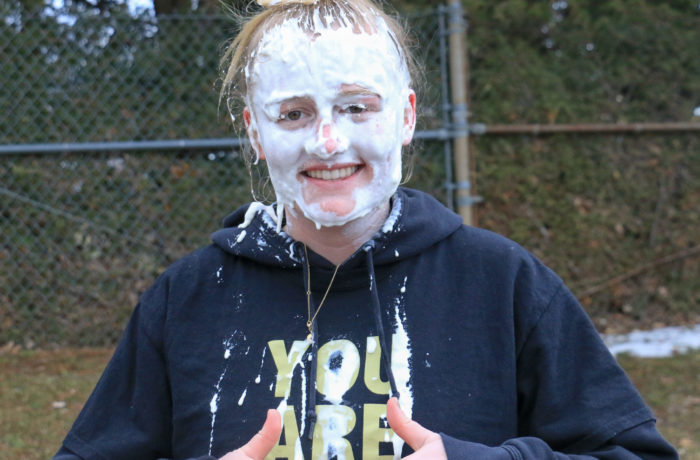By Corinne Duffy
On the third floor of the Durick Library at St. Michael’s College, nestled in a narrow hallway is the office of Susan Ouellette, professor of history. Her office is lined with books and stacks of papers. She gingerly picks up a map, a map that belonged to a woman in the 1800s, a woman by the name of Phebe Orvis. The map, along with newspaper clippings, census data, and a diary were discovered in a box by an antique book dealer in Plattsburgh in the 1960s, and became the focus and main material for a book written by Ouellette. The diary, which Orvis kept for an entire decade from 1820-1830 detailed her life growing up in Addison County and New York, as well as her communications with family and suitors.
An antique book dealer did not believe there was any monetary value, so he gave the box of books to Mary Smallman, who began to do a little research. Then, she passed the materials along to Ouellette, who began to do more extensive research.
At the time, Ouellette and her husband were living in Ferrisburg, Vt. As she read the entries in Phebe’s diary, Ouellette remarked, “I could literally drive down the road and say, ‘that’s where Phebe went to school, that’s where Phebe lived, that’s where Phebe’s grandparents lived’ and so on”. She said that this was perhaps the most ironic thing about the diary because she was able to see and go places Phebe had been.
Originally, Ouellette began speaking about the diary in various talks and conference papers. She also began to use the material in her classes. “I was using it a lot in my classes both as an illustration of the way a historian does things, but also as a way of seeing the past,” Ouellette said.
Later, Ouellette began to think think seriously about writing a book, she wrote a book proposal.and sent the topic to Syracuse Press. Some time later, Syracuse Press got back to her, saying they weren’t interested. Ouellette described the email she received, and how they said “after all, Phebe is just an ordinary woman.”
Yet that was precisely what interested Ouellette. “The words of ordinary women are seldom preserved,” said Ouellette. Anything ordinary people write is so special automatically, because it is so rare.
“You really have to explain to me why the words of an ordinary woman is not interesting,” Ouellette said, when she called up the man from Syracuse Press. After a lengthy phone call with Syracuse Press, they ultimately did not understand her vision, and she decided to publish with SUNY Press, after pitching the book proposal to a representative verbally.
“Phebe’s diary, and diaries in general, are invaluable to historians, as they give us a sense of the day-to-day lives ordinary people led in the past,” said Jennifer Purcell, head of the history department. “In many ways, diaries help us dramatize and personalize the past: we see how different Phebe’s life was from ours, but we also relate on a higher plane with the struggles that speak to our common humanity. In that way, diaries help make the past accessible to a much larger group of readers than we might reach through histories written from other sources, such as government documents or newspapers.
One thing she never found was an image of Phebe The cover of the book is a watercolor painting that her friend made. The painting does not show her face but the image of her on the cover is what Ouellette believes Phebe could have looked like.
Ouellette’s favorite diary entry was from the day Phebe got married. “That [diary entry] was unbelievably shocking to me because the first time I read the diary, I got all the way to that entry and had no clue that she was going to get married, and then she writes ‘What a dreadful day is this’, and I’m thinking how to feel about your wedding.” Ouellette mentions that the word dreadful could take on many meanings whether it is awful or it is just that she is scared. She also adds that she went back to reread the diary, and realized there was no mention of a wedding until the actual day.
Ouellette is already in the preliminary stage of her next book about a man who died five years before Phebe was born. What drew her to this man was that he also had a diary, that was slightly different from Phebe’s. She will also be submitting a piece to a journal about Phebe and her family’s religion


